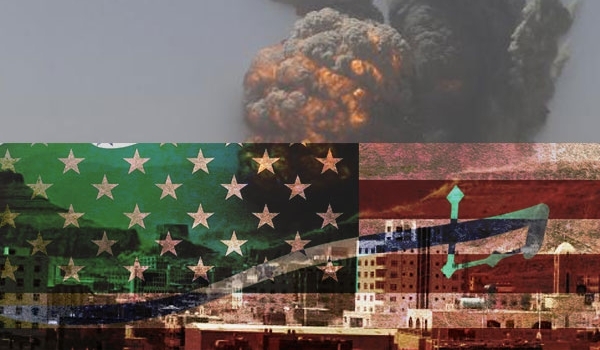
RNA - These are a bit startling at first glance. After all, if most Americans are in favor of adhering to International Law, why are they supporting the Saudi-led war on Yemen? Obviously, “helping the poor and needy” is ;not a priority for Washington, and ending the war on the poorest country in the Arab world is not important to most Americans; why should it be?
The United States has now more than doubled the amount of fuel it provides to Saudi-led coalition jets, according to figures obtained from the US military. The numbers underline the fact that US support for the regime-change campaign has continued and even increased despite growing condemnation of civilian casualties and war crimes by Saudis and Emiratis.
According to conservative United Nations estimates, they are responsible for at least more than 60 percent of all civilians confirmed killed in hostilities since 2015. The Yemen Data Project, which monitors open source reports of airstrikes in Yemen, has recorded more than 13,081 coalition raids through June 2. Roughly a third hit non-military targets, the group found.
Since the Qatari crisis, the United Arab Emirates has also taken on an increasingly active role in Yemen, running ground campaigns along the western coast and against resistance targets in the South. Operations along the coast include troops from Sudan, a country that the US currently sanctions. The Pentagon has weighed how deeply to back a proposed UAE-led operation to capture Yemen’s largest port, Hodeidah, from the Ansarullah movement.
This comes despite the UN warning that such a move against Yemen’s largest port could spell catastrophe amid what is already one of the world’s worst humanitarian crises. Some 20 million Yemenis are on the brink of famine, including 1,000,000 severely malnourished children. A cholera outbreak has spun out of control, likely infecting more than 320,000 people and killing more than 1,740. A Saudi-American-imposed blockade and flight ban on Sana’a has left the entire north of the country cut off, and prevented international aid, journalists and human rights workers from entering the country.
The UAE has also worked closely with the United States to bomb civilians in Yemen. In April of last year, Emirati forces occupied the southern city of Mukalla. This January, just days after President Trump took office, Emirati forces were directly involved in a US raid that claimed the lives of dozens of civilians and killed a Navy Seal. Worse still, the UAE is running a network of secret detention centers in southern Yemen were torture is employed in violation of International Law. The Pentagon admits that US personnel interrogate prisoners held by the UAE, though they deny any knowledge of torture and abuses. This does in no way mean they are not complicit in Emirati abuses.
All this and more, however, reflects a US policy shift favoring a permanent war on Yemen. Meaning, even if all Yemeni warring factions come together and end the war, the Saudis, the Emiratis and the Americans won’t. They will continue to refuel jets and target civilian objects with great impunity and no accountability. Just like in Afghanistan, the Yemeni soil will also continue to be a trying ground for American-made Saudi-Emirati war planes and guns.
They will occupy parts of Yemen as well. It is not a surprise or strange thing that this will pave the way for a permanent drone war on the Arab country. Washington is trying to do this with complete secrecy and speed, but the satellite images and sources from within Yemen have revealed what is happening there.
As is, America is always seeking to increase its influence and is waiting for such opportunities to rule under any circumstances, even if at the expense of starvation or displacement of people on whose territory it creates illegal bases. The details of the operation and the mechanism of the American forces establishing the base are there for all to see – on one of the largest islands in the Red Sea.
The satellite images show that the site, a closed military zone, is the Island of Hanish al-Kubra, which is 130 km from the city of Hodeidah. This came after the Saudi-led coalition began controlling the Islands of Socotra in the Arabian Sea and Bab al-Mandeb and Zaqer in the Red Sea.
The importance of the site is that it is located in a vital area of great strategic importance in the Red Sea, which in turn connects the three continents of the world, Asia, Africa and Europe. It is one of the most important shipping routes in the world. Expect this to become one of the most dangerous places to witness a major international conflict.
In sum, war-party Washington is strengthening its military presence there to protect the Israeli regime which faced the 1973 war when Yemen closed the Bab al-Mandeb strait with the agreement of Egypt. The idea is to strip the regional countries of all their defense and weapon capabilities against Israel. Whatever the pretext, this has to stop. It is a flagrant violation of International Law and an infringement of Yemen’s national sovereignty.
847/940